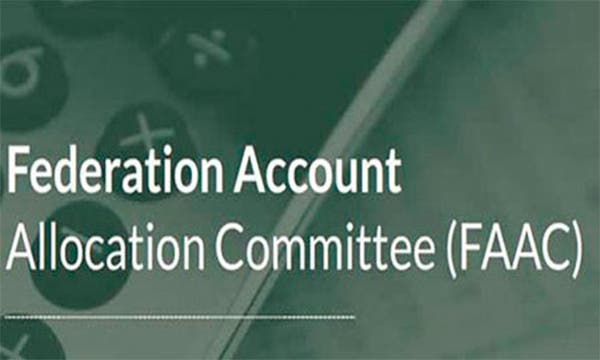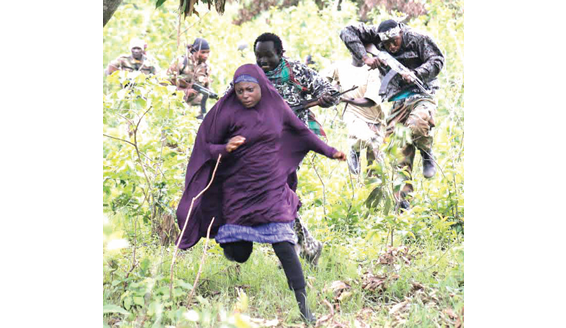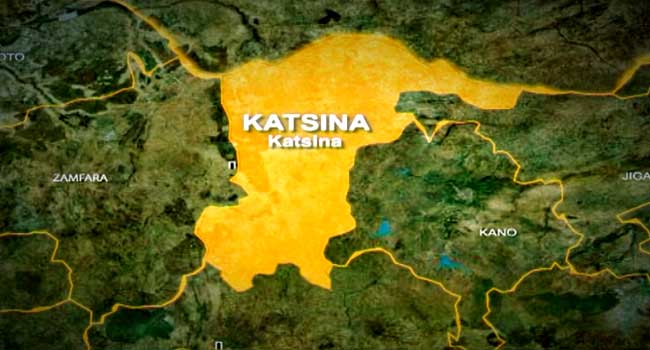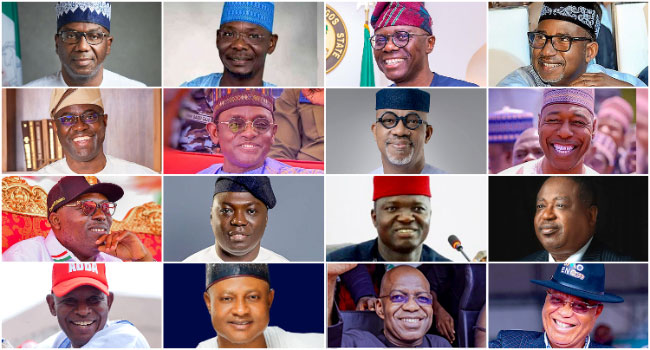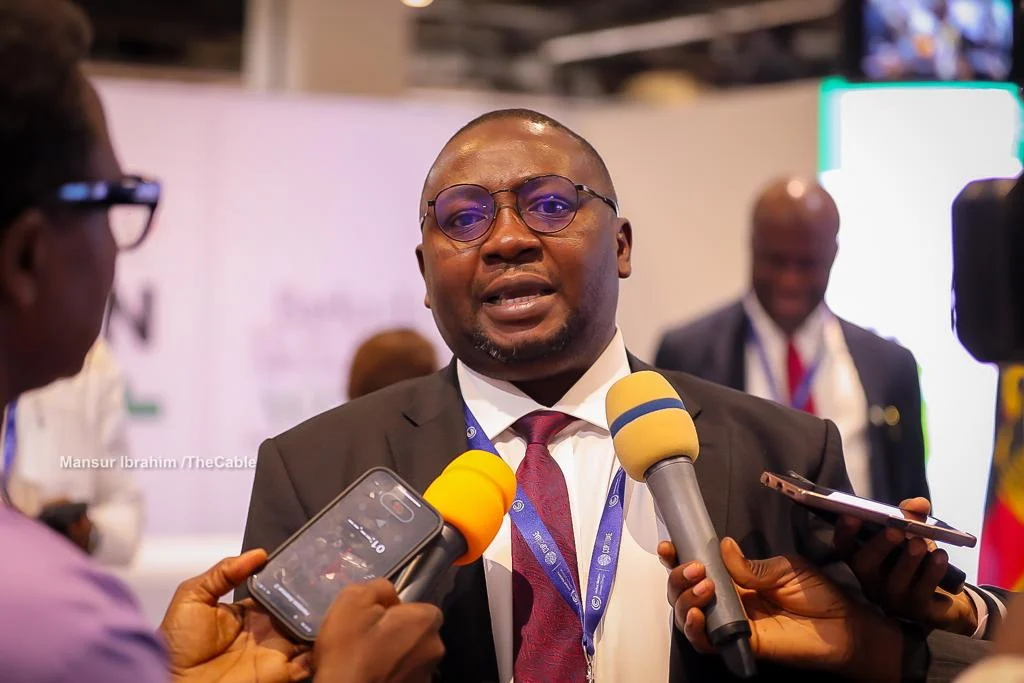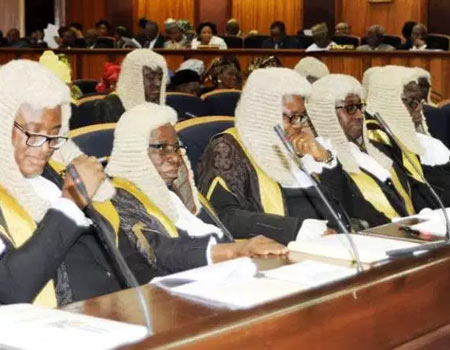The House of Representatives has passed the bill for upward review of salaries, allowances and fringe benefits for Judicial Office Holders across the country through Third Reading. The bill which seeks to amend Certain Political, Public and Judicial Office Holders (Salaries and Allowances, etc) Act, No. 6, 2002 (as amended) by deleting Section 2(b), Part II of the Schedule to the Act and any other provisions relating to Judicial Office Holders. The bill, when signed into law by President Bola Tinubu is to take effect from 1st January 2024. Part I of the schedule showed that the Chief Justice of Nigeria is entitled to: N13,462,617.95 annual basic salary or N1,121,884.83 monthly salary. The CJN is also entitled to: N51,157,948.21 annual regular allowances or N4,263,162.35 monthly regular allowances. He is also entitled to non-regular allowances of: N6,731,308.98 Leave Allowance (when applicable), N142,500 Duty Tour Allowance (per night); $2,000 estacode (per night); N80,775,707.70 severance gratuity (after successful completion of tenure) and N53,850,471.80 as motor vehicle loan (to be repaid before expiration of tenure), while Professional Development Assistant is to be paid from the NJC pool. Other Justices of the Supreme Court are to N9,913,394.22 annual basic salary or N826,116.19 monthly salary. Each of them is also entitled to: N50,558,310.52 annual regular allowances or N4,213,192.54 monthly regular allowances. Each of them is also entitled to non-regular allowances of: N9,913,394.22 for Rent (annually); N4,956,697.11 Leave Allowance (when applicable), N100,000 Duty Tour Allowance (per night); $1,300 estacode (per night); N29,740,182.66 severance gratuity (after successful completion of tenure), N29,740,182.66 furniture Allowance and N39,653,576.88 as motor vehicle loan (to be repaid before the expiration of tenure), while Professional Development Assistant is to be paid from the NJC pool. President of the Court of Appeal is entitled to N9,913,394.22 annual basic salary or N826,116.19 monthly salary. He/She is also entitled to: N52,540,989.37 annual regular allowances or N4,478,415.78 monthly regular allowances. He/She is also entitled to non-regular allowances of: N9,913,394.22 Rent (annually); N4,956,697.11 Leave Allowance (when applicable), N100,000 Duty Tour Allowance (per night); $1,300 estacode (per night); N29,740,182.66 severance gratuity (after successful completion of tenure), N29,740,182.66 furniture Allowance and N39,653,576.88 as motor vehicle loan (to be repaid before expiration of tenure), while Professional Development Assistant is to be paid from the NJC pool. Each of the Justices of the Court of Appeal is entitled to: N7,985,711.58 annual basic salary or N665,475.97 monthly salary. Each of them is also entitled to: N44,719,984.85 annual regular allowances or N3,726,665.40 monthly regular allowances. Each of them is also entitled to non-regular allowances of: N7,985,711.58 for Rent (annually); N3,992,855.79 Leave Allowance (when applicable), N85,500 Duty Tour Allowance (per night); $1,100 estacode (per night); N23,957,134.74 severance gratuity (after successful completion of tenure); N23,957,134.74 Furniture Allowance and N31,942,846.32 as motor vehicle loan (to be repaid before the expiration of tenure), while Professional Development Assistant is to be paid from the NJC pool. Also, the Chief Judge of the Federal High Court, the President of the National Industrial Court, the Chief Judge FCT High Court, Grand Khadi FCT Sharia Court of Appeal, the Resident FCT Customary Court of Appeal, Chief Judge State High Court, Grand Kadi State Sharia Court of Appeal and President State Customary Court of Appeal are all entitled to the same salaries, allowances and fringe benefits. Each of the Justices of the Court of Appeal is entitled to: N7,985,711.58 annual basic salary or N665,475.97 monthly salary. Each of them is also entitled to: N42,324,271.37 annual regular allowances or N3,527,022.61 monthly regular allowances. Each of them is also entitled to non-regular allowances of: N7,985,711.58 for Rent (annually); N3,992,855.79 Leave Allowance (when applicable), N85,500 Duty Tour Allowance (per night); $1,100 estacode (per night); N23,957,134.74 severance gratuity (after successful completion of tenure); N23,957,134.74 Furniture Allowance and N31,942,846.32 as motor vehicle loan (to be repaid before the expiration of tenure), while Professional Development Assistant is to be paid from the NJC pool. In the same vein, Judges of the Federal High Court, National Industrial Court, FCT High Court, FCT Customary Court of Appeal, State High Court, State Customary Court of Appeal, Kadis FCT Sharia Court of Appeal and Kadis State Sharia Court of Appeal are entitled to the same salaries, allowances and fringe benefits. Each of them is entitled to: N7,222,569.48 annual basic salary or N601,880.79 monthly salary. Each of them is also entitled to: N36,835,104.35 annual regular allowances or N3,069,592.03 monthly regular allowances. Each of them is also entitled to non-regular allowances of: N7,222,569.48 for Rent (annually); N3,611,284.74 Leave Allowance (when applicable), N57,000 Duty Tour Allowance (per night); $600 estacode (per night); N21,677,708.44 severance gratuity (after successful completion of tenure); N21,677,708.44 Furniture Allowance and N28,890,277.92 as motor vehicle loan (to be repaid before expiration of tenure), while Professional Development Assistant is to be paid from the NJC pool. The bill is expected to be transmitted to the President for assent.


